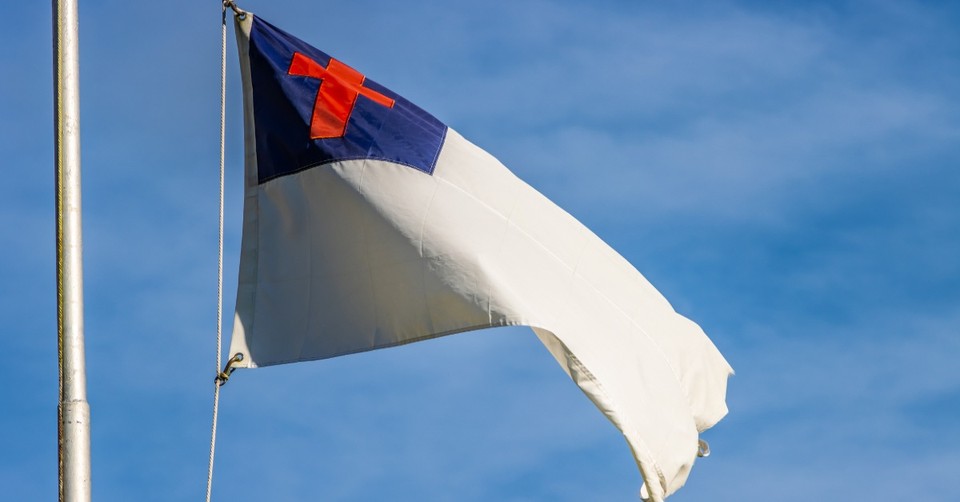Is Christianity Being Replaced by the Religion of “Wokeism?”

One thing that’s always bothered me about fellow Christians is hearing phrases like, “You’re not really a Christian if…” Fill in the blank. I often hear this as gossip when one person disapproves of someone else. They never express themselves to the person, but don’t hold their tongue when talking about them. Needless to say, I’ve listened to my fair share of gossip, and at times have been the subject.
Recently though, I found myself echoing this same sentiment, not about myself, but another. And not through the sin of gossip, but thinking to myself. Hopefully, my “You’re not really a Christian if…” was more justified. Maybe. I came across a certain pastor who professed a belief in God, but his belief was not scripturally sound, rather, his thoughts reflected much of modern-day culture. In his eyes, God is “non-binary,” “queer,” and “autistic.” If this man were a pastor, or whatever he is, ten years ago, would he be saying any of this? Probably not.
Just as our number of church attendees has been steadily decreasing nationwide over the years, so too have our values. The faith that seems to be dying in America, is dying within us Christians. We claim to espouse one thing while representing something else entirely.
That brings us to a dire and important question. Is American Christianity being replaced by the Religion of Wokeism? I believe the answer is undoubtedly yes, but don’t just take my word for it. Let’s examine various areas where the two faiths clash and identify which one is obviously better for us as individuals and as a nation.
The God vs. My God
Have you ever heard someone say “my truth”? If you’re in academia, the term moral relativism should sound quite familiar. For several years now, moral relativism has been replacing what we once defined as truth. Instead of the truth, there is only my truth and your truth.
Likewise, people talk about god, only, they use a lowercase g. Sometimes instead of saying God, they’ll say the universe. Other times, they don’t believe in God at all.
Ideally, religion is meant to be unifying. Various people, no matter their background, unite under a common set of beliefs. Christianity doesn’t hide this fact, but Wokeism does. Under the latter, there is the pretense of everyone having their own truth, all equally acceptable (except for Christianity, of course).
Yet, even moral relativists would say that such things as rape and murder are wrong. Well, wait a second. Why are these things wrong?
The Bible helps Christians understand right from wrong. Outside of that, how do you know what to believe if God didn’t say it? What rights do you have if God didn’t grant them?
Ultimately, Christians have a book that informs our beliefs. The Wokeists follow the trends set by people. They are their own gods.
Christian Love vs. Progressive Love
Christian love often gets misrepresented as being full of affirmation all the time. In the faith, there is plenty of affirmation to go around, but there’s also room for discipline (Proverbs 22:15). Plenty of room, in fact. If you read Scripture, you’ll see how God serves as a great example.
Though we love people as Christians, we recognize that true love means willing what’s best for another. Sometimes what’s best for someone is discipline, the ending of a relationship, conflict, and more, not just affirmation.
Wokeism pretends to be solely based in affirmation. There is the belief that people should feel good about themselves all the time. People are praised for being gay, fat, polyamorous, often things that Christianity labels sin. However, rest assured there are certain behaviors the religion does not tolerate.
In the end, Wokeism doesn’t make sense, not if we’re sinners (Romans 3:23).
Sin vs. -Phobia and -Ism
The behaviors that Wokeism abhors include all of the -ism’s and -phobia’s. Transphobia. Homophobia. Islamophobia. Racism. Sexism. This characterization of sin is flawed on various levels. For starters, to dislike certain behavior (not the people themselves) is to commit the transgression. Your intentions don’t matter.
In Christianity, intention is essential (James 4:17). Moreover, our faith allows us to repent for wrongdoing. We seek forgiveness from God and the affected parties then strive to be better.
Wokeism is supported by cancel culture which leaves no room for repentance even with apologies.
Church vs. Safe Spaces
Proponents of Wokeism defend the movement as not being religious because there is no physical church. Sure, there are no Sunday gatherings with wine and bread, but there are gatherings that occur. These are called safe spaces, where people go to be reaffirmed in their values.
That’s what we Christians do on Sunday. Furthermore, we also know that the idea of “church” extends beyond meeting every Sunday. Church can be any place where people gather and share ideas. The space is less important than why you’ve come together.

Photo Credit: ©iStock/Getty Images Plus/patpitchaya
Individual Sin vs. Community Sin
We’ve established that everyone sins. In Christianity, you’re accountable for your sin. In Wokeism this isn’t always true. Sometimes you are held to account for the sin of your perceived ancestors. This is often broken down into racial categories. People of a certain group are labeled as oppressors, and the other group is the oppressed. Then you’re treated accordingly.
Victory vs. Victimization
Speaking of our arbitrary racial categories, there’s no denying that many people make a profit off of victimization. To be in an oppressed group affords certain privileges, however, such behavior denounces the power we can all find in Christ.
We are victims if we live as such. Of course, bad things happen to us, that’s unavoidable, but with God the bad things can be overcome (Romans 8:28). In Wokeism, your troubles define your identity.
Virtue vs. Virtue Signaling
Hypocrisy comes up a number of times in Scripture, where one person espouses a certain value, but doesn’t live up to that expectation, and may not even believe in it. Christianity calls the inconsistency a sin. In Wokeism, hypocrisy is an expected part of the religion.
For example, politicians gave orders during the pandemic, and many of them did not follow their own guidelines regarding social distancing and masks. In Christianity, virtue is something we all strive for, acknowledging that we fall short. That’s when we repent and make a sincere change. The virtue signaling in Wokeism is just that, a signal, because it’s all for show.
Heterosexuality vs. LGBTQ+
There’s one type of relationship that has the ability to produce life. Coincidentally, or not, that same relationship is also best suited for child rearing according to research.
Similar to how Paul spoke in 1 Corinthians 6:12, we all manifest desires, good or bad, but we decide which desires we feed and what we do not. Though things are available to us doesn’t mean we should reach for them. The Christian faith, for example, condemns sexuality that deviates from male-female relations. Wokeism purports that love is love, no matter the situation, leaving out only pedophilia and incest for now. If you want to be with someone, go for it.
Such behavior doesn’t invite God into the relationship and places the focus not on what God says is best, but rather what the individual wants.
Nuclear Family vs. Modern Family
For millennia, Christians, non-Christians, everybody, understood marriage was between a man and a woman. Such a union is the cornerstone of society. Without couples producing children, there was no society. Today, marriage has taken on a new meaning and so has the idea of family.
In Wokeism, don’t be surprised to find three or more polyamorous parents, and potentially an absence of any children. Ideas like abortion and living childfree don’t exactly speak to valuing the young ones, but speak plenty to being selfish.
On the topic of marriage, Wokeism pushes the idea that there are no differences in childrearing for straight couples and same-sex couples. A lot of modern research says this, but that idea would then inevitably conclude there are no differences between men and women. However, God did make women and men differently and that doesn’t change no matter what current politics say.
The Religion of Tomorrow?
For anyone who supports Wokeism, or even Progressive Christianity, I ask a simple question: Are Americans happier today than they were when Christianity was the dominant religion? Here’s another: Are marriages lasting longer? Are children less anxious? Are there fewer mental disorders today? Drug addictions? The list goes on.
While Wokeism and other movements may want to eradicate religion in the traditional sense, we just can’t. See, what we all want as humans is purpose. We are on this Earth so briefly and need purpose to live. Christian faith doesn’t just give us purpose. We don’t believe in God just because we don’t want to die and cease to be. We believe in God because Scripture is true.
History supports this. Science supports this. God is real and the evidence of that is all around us. No, we can’t reach out and touch Him as we would a friend, but that’s the point of faith (2 Corinthians 5:17).
And to fellow Christians, no matter how bleak things look, the religion of tomorrow will always be Christianity. Not because of this article, not because of America, but because God’s Word endures forever.
“Heaven and earth will pass away, but my words will never pass away.” (Matthew 24:35)
Do you think wokeism functions like a religion? See what other believers think and join the conversation on Crosswalk Forums!
Photo Credit: ©GettyImages/Ajax9

Get in touch with him at aarondanthony.com and check out his debut short story anthology Honey Dreams on Amazon and Barnes and Noble.
Originally published March 28, 2022.







